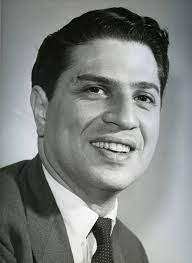Miliband, Ralph

Bio: (1924-1994) British sociologist. Ralph Miliband earned his Ph.D. from the London School of Economics and has taught at the same university as well as at other universities in the UK and the US. Miliband is one of the most famous Marxist sociologists in Britain of the twentieth century. Class conflict was a central theme of his sociology, and he believed that the working class must play a crucial role in the transformation of society. In Parliamentary Socialism: A Study in the Politics of Labour (1961), he criticized the British Labor Party and its prime ministers for becoming too focused on parliamentary action, instead on everyday activism that would improve the well-being of the working class. He also believed that the Labor Party should give up on its focus on gradual reforms and that it should start advocating for true socialism.
In his book The State in Capitalist Society (1969), Miliband challenges the idea that power in capitalist society is divided between a large number of groups fighting among themselves. Instead of this pluralistic view, he advocates and proves the view that the ruling class possesses a great concentration of power, and that it has a decisive role in creating ideology and politics. He believes that the ruling class has control over state institutions (police, army, judiciary, central and local government, and state administration) and that through the control of these institutions that class maintains its power. The ruling class is made up of those who possess economic power and who use that power to take control over state institutions, in order to maintain that economic power and stabilize capitalist relations.
In that sense, people who directly manage state institutions, even when they themselves are not part of the capitalist class, mostly work for the benefit and in the interest of the capitalist class. When politicians and state bureaucrats come from a working class background, they work in the interest of capitalists because they have accepted the values of the capitalist class and are therefore co-opted into the bourgeoisie. Miliband also studies how this type of ideological legitimization is implemented, and especially pays closer attention to the important role marketing has in that process. Marketing spreads ideological legitimization of capitalism in several ways: capitalist corporations use marketing to portray themselves as those who work for the common good, not for their own selfish interests; advertisements associate products with generally accepted positive values and emotions; marketing spreads the ideology of consumerism to the masses.
In the article "Politics and Poverty" (1974) Miliband notes that there is a large difference in power between well-paid manual workers, who can use the power of unions or resist capitalists through strikes, compared to the poor (unemployed, sick, single parents, poorly paid workers) who have neither personal nor organizational resources to fight for their interests. He concludes that poverty will not be eradicated until the economic structures that cause it, and in which it is embedded, change.
In his book, Marxism and Politics (1977) Miliband presents a negative critique of the Soviet type of socialism, primarily due to the lack of political freedoms in it, and presents a strategy for the transformation of society that would lead to true socialist democracy. In the book Capitalist Democracy in Britain (1982), Miliband shows how British institutions and political culture create the limitation of opportunities for protest and change. In his book Divided Societies: Class Struggle in Contemporary Capitalism (1989), Miliband argues that, even though new social movements and their ideologies put identity politics at the forefront, class divisions remain the basic and key divisions in capitalism.
Fields of research
Capitalism Capitalist Class Classes Conflict Consumerism Control, Social Corporations Democracy Economy Freedom Identity Ideology Institution and Organization Marketing Movements, Social Parties, Political Politics Poverty Power, Political Protests Socialism State Unemployment Work Working ClassTheoretical approaches
Marxism – Historical MaterialismMain works
Parliamentary Socialism: A Study in the Politics of Labour (1961);
The State in Capitalist Society (1969);
„Politics and Poverty”, in Wedderburn (ed.) Poverty, Inequality and Class Structure (1974);
Marxism and Politics (1977);
Capitalist Democracy in Britain (1982);
Class Power and State Power (1983);
Divided Societies: Class Struggle in Contemporary Capitalism (1989);
Socialism for a Sceptical Age (1994).

